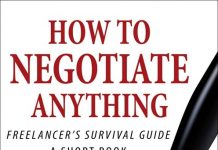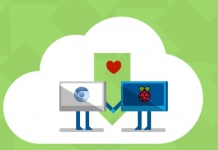 Is Digital Making Us Dumber? (GoodeReader)
Is Digital Making Us Dumber? (GoodeReader)
Since the most recent advent of digital reading and ebook proliferation, the techno format has been blamed for a drop in reading comprehension scores among grade school students, developmental concerns over children’s screen time, and even the overturning of a time-honored pricing and value structure within the publishing industry.
***
How This Tokyo Bookstore Made Me Fall Back In Love With Print (Medium)
And why Tsutaya gives me second thoughts about the primacy of digital culture…
***
Children in Mali Can Now Read PD eBooks, Wikipedia Thanks to MALebooks eReaders (Ink, Bits & Pixels)
This project seeks to distribute ereaders packed with reading material to young Malians. It’s still in the very early stages, but a total of 42 ereaders have been given away since September 2014.
***
What Makes a Book Significant? (Book Riot)
I’ve never been hyper-egalitarian about everything being art, though; it’s always been clear to me that some works are very creative but not significant in the way that, say, Pablo Neruda or Toni Morrison is Significant.
***
Kindle Daily Deal: The Oracle Glass (and others)

































Is digital making us dumber? It is a bit worrisome if, as that linked article claims, the average student now has a shorter attention span than a goldfish.
But digital, despite all the hype, isn’t that different from print. If I walk a few blocks from my place in one direction, I come to the local public library that, while it does have a decent collection of history books, is woefully lacking in almost any other category but popular, bestselling fiction. I actually tried reading a bit of the latter and gave up after a few chapters. I’d rather endure water torture than read them.
Walk a bit further in the opposite direction down that same street and there’s a university library, the largest in the state, with no less than three-million volumes, very few of them empty-headed fiction. Yet both are libraries and both have shelves of print books.
The digital world is no different. There’s plenty of websites dedicated to celebrity gossip. Go there and you’ll soon have the attention span not of a goldfish but of a gnat. That’s where the trouble is coming from. But how much of it is cause and how much is effect? Does following some celebrity online give you the mind of a gnat or are those who aspire to have the minds of gnats simply choose to go there and, absence the Internet, would be destroying their minds with celebrity gossip magazines.
There are also marvelous alternatives in digital as in print. You can get much of the math and science of a STEM education with a $200 tablet watching Khan Academy videos.
And it just came to me recently that for about $100 a month, you could get a Adobe Creative Cloud subscription and membership in Lynda.com. Between the two, you could master many of the creative designer/artist skills that’d cost a fortune at a university or private art school. Keep at it and you could soon be billing clients who’d be happy to pay you many times the minimum wage for your skills.
Indeed, with the cost of a university education spiraling out of control, the Khan/Creative Cloud/Lynda route is beginning to make more and more sense. And it’s as much a fruit of our digital age as celebrity websites.
In the end, it boils down to the choices we make about what we do with our time, whether we send our browser to: http://www.lynda.com or to: http://www.celebrity-gossip.net
Our real problem as a society isn’t the Internet or digital. It’s identity politics and a whining, play the victim, blame others mindset. Think that others hostile to you can block your access to success, and you’ll become a loser not from a lack of opportunities but from a lack of opportunities pursued.
Digital means much greatly increased chance to waste your time or to put it to use.